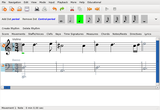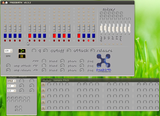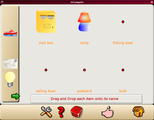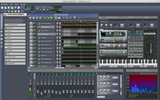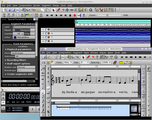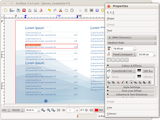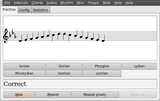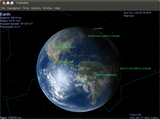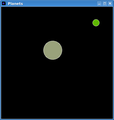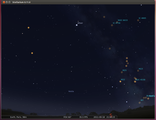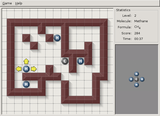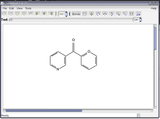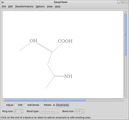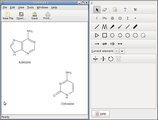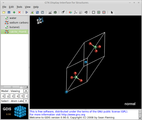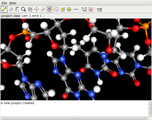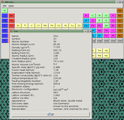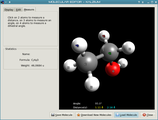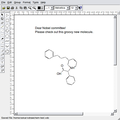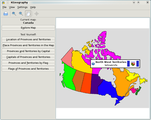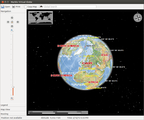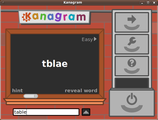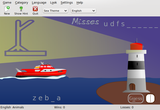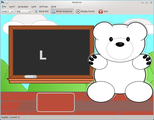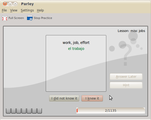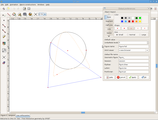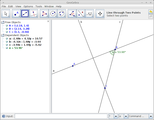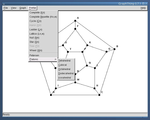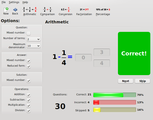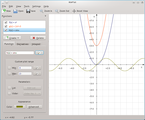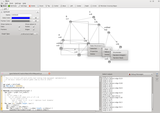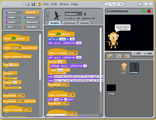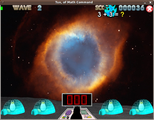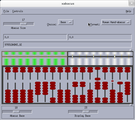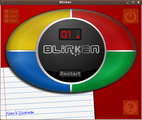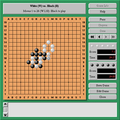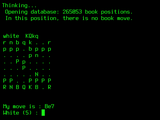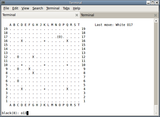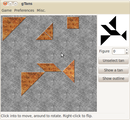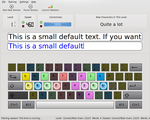The Debian Edu and
+Skolelinux distribution have users and contributors all around the
+globe. And a while back, an enterprising young man showed up on
+our IRC channel
+#debian-edu and started asking questions about how Debian Edu
+worked. We answered as good as we could, and even convinced him to
+help us with translations. And today I managed to get an interview
+with him, to learn more about him.
-
This is the release notes for for Debian Edu / Skolelinux 7.0.0 edu
-alpha1, based on Debian with
-codename "Wheezy".
+
Who are you, and how do you spend your days?
-
About Debian Edu and Skolelinux
+
I'm a 25 year old free software enthusiast, living in Romania,
+which is also my country of origin. Back in 2009, at a New Year's Eve
+party, I had a very nice beer discussion with a
+friend, when we realized we have no organised Debian community in our
+country. A few days later, we put together the infrastructure for such
+community and even gathered a nice Debian-ish crowd. Since then, I
+began my quest as a free software hacker and activist and I am
+constantly trying to cover as much ground as possible on that
+field.
+
+
A few years ago I founded a small web development company, which
+provided me the flexible schedule I needed so much for my
+activities. For the last 13 months, I have been the Technical Director
+of FundaÈia Ceata, which is a free
+software activist organisation endorsed by the FSF and the FSFE, and
+the only one we have in our country.
-
Debian Edu, also known as Skolelinux, is a Linux distribution based
-on Debian providing an out-of-the box environment of a completely
-configured school network. Immediatly after installation a school
-server running all services needed for a school network is set up just
-waiting for users and machines being added via GOsa², a comfortable
-Web-UI. A netbooting environment is prepared using PXE, so after
-initial installation of the main server from CD, DVD or USB stick all
-other machines can be installed via the network.
+
How did you get in contact with the Skolelinux / Debian Edu
+project?
-
This is the first test release based on Wheezy (which currently is
-not released yet). Basically this is an updated and slightly improved
-version compared to the Squeeze release.
+
The idea of participating in the Debian Edu project was a surprise
+even to me, since I never used it before I began getting involved in
+it. This year I had a great opportunity to deliver a talk on
+educational software, and I knew immediately where to look. It was a
+love at first sight, since I was previously involved with some of the
+technologies the project incorporates, and I rapidly found a lot of
+ways to contribute.
+
+
My first contributions consisted in translating the installer and
+configuration dialogs, then I found some bugs to squash (I still
+haven't fixed them yet though), and I even got my eyes on some other
+areas where I can prove myself helpful. Since the appetite for free
+software in my country is pretty low, I'll be happy to be the first
+one around here advocating for the project's adoption in educational
+environments, and maybe even get my hands dirty in creating a flavour
+for our own needs. I am not used to make very advanced plannings, so
+from now on, time will tell what I'll be doing next, but I think I
+have a pretty consistent starting point.
+
+
What do you see as the advantages of Skolelinux/Debian
+Edu?
-
Software updates
-
- - Install freemind (0.9.0) by default, and stop installing vym by
- default.
- - Install chromium (26.0.1410.43) by default.
- - Install goplay (0.5-1.1) to make golearn available by default.
- - Updated support for Japanese input methods, now based on
- ibus-anthy.
-
+
Not a long time ago, I was in the position of configuring and
+maintaining a LDAP server on some Debian derivative, and I must say it
+took me a while. A long time ago, I was maintaining a bigger
+Samba-powered infrastructure, and I must say I spent quite a lot of
+time on it. I have similar stories about many of the services included
+with Skolelinux, and the main advantage I see about it is the
+out-of-the box availability of them, making it quite competitive when
+it comes to managing a school's network, for example.
+
+
Of course, there is more to say about Skolelinux than the
+availability of the software included, its flexibility in various
+scenarios is something I can't wait to experiment "into the wild" (I
+only played with virtual machines so far). And I am sure there is a
+lot more I haven't discovered yet about it, being so new within the
+project.
-
Other changes
-
+
As usual, when it comes to Debian Blends, I see as the biggest
+disadvantage the lack of a numerous team dedicated to the
+project. Every day I see the same names in the changelogs, and I have
+a constantly fear of the bus factor in this story. I'd like to see
+Debian Edu advertised more as an entry point into the Debian
+ecosystem, especially amongst newcomers and students. IMHO there are a
+lot low-hanging fruits in terms of bug squashing, and enough
+opportunities to get the feeling of the Debian Project's dynamics. Not
+to mention it's a very fun blend to work on!
+
+
Derived from the previous statement, is the delay in catching up
+with the main Debian release and documentation. This is common though
+to all blends and derivatives, but it's an issue we can all work
+on.
-
Known issues
-
+Which free software do you use daily?
- - IP resolution for the local hostname give useless IPv6 address
- (705900). Only install
- libnss-myhostname on roaming workstations until it is fixed.
- - DVD images are not yet ready.
- - No mass import of user account data in GOsa (ldif or csv)
- available yet (698840).
- - Missing artwork for the KDE desktop (and probably a few others).
- - KDE Debian submenu lacks icons.
- - LXDE menu lacks entry for changing GOsa password
- (website). Installing gosa-desktop will be an option.
- - Backup configuration via web interface is impossible due to
- password submission problem
- (700257).
+I can hardly imagine myself spending a day without Vim, since my
+daily routine covers writing code and hacking configuration files. I
+am a fan of the Awesome window manager (but I also like the
+Enlightenment project a lot!),
+Claws Mail due to its ease of
+use and very configurable behaviour. Recently I fell in love with
+Redshift, which helps me
+get through the night without headaches. Of course, there is much more
+stuff in this bag, but I'll need a blog on my own for doing this!
-
+
Which strategy do you believe is the right one to use to
+get schools to use free software?
-
Where to get it
+
Well, on this field, I cannot do much more than experiment right
+now. So, being far from having a recipe for success, I can only assume
+that:
-
To download the multiarch netinstall CD release you can use
+
students will love the openness of the system, and will want to
+ experiment with it - maybe we need to harvest the native curiosity
+ of teenagers more?
-
The MD5SUM of this image is: 685ed76c1aa8e44b12d3fde21faf450b
+
there is no "right one" when it comes to strategies, but it would
+ be useful to have some success stories published somewhere, so
+ other can get some inspiration from them (I know I'd promote
+ them!)
-
The SHA1SUM of this image is: 6c874de157024da13e115bab29c068080a11ec4c
+
more active promotion - talks, conferences, even small school
+ lectures can do magical things if they encounter at least one
+ person interested. Who knows who that person might be? ;-)
-
How to report bugs
+
-
http://wiki.debian.org/DebianEdu/HowTo/ReportBugs
+
I also see some problems in getting Skolelinux into schools; for
+example, in our country we have a great deal of corruption issues, so
+it might be hard(er) to fight against proprietary solutions. Also,
+people who relied on commercial software for all their lives, would be
+very hard to convert against their will.
-
-
11th May 2013
-
In January,
-I
-announced a new IRC
-channel #debian-lego, for those of us in the Debian and Linux
-community interested in LEGO, the
-marvellous construction system from Denmark. We also created
-a wiki page to have
-a place to take notes and write down our plans and hopes. And several
-people showed up to help. I was very happy to see the effect of my
-call. Since the small start, we have a debtags tag
-hardware::hobby:lego
-tag for LEGO related packages, and now count 10 packages related to
-LEGO and Mindstorms:
-
-
-| brickos | alternative OS for LEGO Mindstorms RCX. Supports development in C/C++ |
-| leocad | virtual brick CAD software |
-| libnxt | utility library for talking to the LEGO Mindstorms NX |
-| lnpd | daemon for LNP communication with BrickOS |
-| nbc | compiler for LEGO Mindstorms NXT bricks |
-| nqc | Not Quite C compiler for LEGO Mindstorms RCX |
-| python-nxt | python driver/interface/wrapper for the Lego Mindstorms NXT robot |
-| python-nxt-filer | simple GUI to manage files on a LEGO Mindstorms NXT |
-| scratch | easy to use programming environment for ages 8 and up |
-| t2n | simple command-line tool for Lego NXT |
-
-
-
Some of these are available in Wheezy, and all but one are
-currently available in Jessie/testing. leocad is so far only
-available in experimental.
-
-
If you care about LEGO in Debian, please join us on IRC and help
-adding the rest of the great free software tools available on Linux
-for LEGO designers.
+
+
12th June 2013
+
There is a certain cross-over between the
+Debian Edu / Skolelinux
+project and the Edubuntu
+project, and for example the LTSP packages in Debian are a joint
+effort between the projects. One person with a foot in both camps is
+Jonathan Carter, which I am now happy to present to you.
+
+
Who are you, and how do you spend your days?
+
+
I'm a South-African free software geek who lives in Cape Town. My
+days vary quite a bit since I'm involved in too many things. As I'm
+getting older I'm learning how to focus a bit more :)
+
+
I'm also an Edubuntu contributor and I love when there are
+opportunities for the Edubuntu and Debian Edu projects to benefit from
+each other.
+
+
How did you get in contact with the Skolelinux / Debian Edu
+project?
+
+
I've been somewhat familiar with the project before, but I think my
+first direct exposure to the project was when I met Petter
+[Reinholdtsen] and Knut [Yrvin] at the Edubuntu summit in 2005 in
+London. They provided great feedback that helped the bootstrapping of
+Edubuntu. Back then Edubuntu (and even Ubuntu) was still very new and
+it was great getting input from people who have been around longer. I
+was also still very excitable and said yes to everything and to this
+day I have a big todo list backlog that I'm catching up with. I think
+over the years the relationship between Edubuntu and Debian-Edu has
+been gradually improving, although I think there's a lot that we could
+still improve on in terms of working together on packages. I'm sure
+we'll get there one day.
+
+
What do you see as the advantages of Skolelinux / Debian
+Edu?
+
+
Debian itself already has so many advantages. I could go on about
+it for pages, but in essence I love that it's a very honest project
+that puts its users first with no hidden agendas and also produces
+very high quality work.
+
+
I think the advantage of Debian Edu is that it makes many common
+set-up tasks simpler so that administrators can get up and running
+with a lot less effort and frustration. At the same time I think it
+helps to standardise installations in schools so that it's easier for
+community members and commercial suppliers to support.
+
+
What do you see as the disadvantages of Skolelinux / Debian
+Edu?
+
+
I had to re-type this one a few times because I'm trying to
+separate "disadvantages" from "areas that need improvement" (which is
+what I originally rambled on about)
+
+
The biggest disadvantage I can think of is lack of manpower. The
+project could do so much more if there were more good contributors. I
+think some of the problems are external too. Free software and free
+content in education is a no-brainer but it takes some time to catch
+on. When you've been working with the same proprietary eco-system for
+years and have gotten used to it, it can be hard to adjust to some
+concepts in the free software world. It would be nice if there were
+more Debian Edu consultants across the world. I'd love to be one
+myself but I'm already so over-committed that it's just not possible
+currently.
+
+
I think the best short-term solution to that large-scale problem is
+for schools to be pro-active and share their experiences and grow
+their skills in-house. I'm often saddened to see how much money
+educational institutions spend on 3rd party solutions that they don't
+have access to after the service has ended and they could've gotten so
+much more value otherwise by being more self-sustainable and
+autonomous.
+
+
Which free software do you use daily?
+
+
My main laptop dual-boots between Debian and Windows 7. I was
+Windows free for years but started dual-booting again last year for
+some games which help me focus and relax (Starcraft II in
+particular). Gaming support on Linux is improving in leaps and bounds
+so I suppose I'll soon be able to regain that disk space :)
+
+
Besides that I rely on Icedove, Chromium, Terminator, Byobu, irssi,
+git, Tomboy, KVM, VLC and LibreOffice. Recently I've been torn on
+which desktop environment I like and I'm taking some refuge in Xfce
+while I figure that out. I like tools that keep things simple. I enjoy
+Python and shell scripting. I went to an Arduino workshop recently and
+it was awesome seeing how easy and simple the IDE software was to get
+up and running in Debian compared to the users running Windows and OS
+X.
+
+
I also use mc which some people frown upon slightly. I got used to
+using Norton Commander in the early 90's and it stuck (I think the
+people who sneer at it is just jealous that they don't know how to use
+it :p)
+
+
Which strategy do you believe is the right one to use to
+get schools to use free software?
+
+
I think trying to force it is unproductive. I also think that in
+many cases it's appropriate for schools to use non-free systems and I
+don't think that there's any particular moral or ethical problem with
+that.
+
+
I do think though that free software can already solve so so many
+problems in educational institutions and it's just a shame not taking
+advantage of that.
+
+
I also think that some curricula need serious review. For example,
+some areas of the world rely heavily on very specific versions of MS
+Office, teaching students to parrot menu items instead of learning the
+general concepts. I think that's very unproductive because firstly, MS
+Office's interface changes drastically every few years and on top of
+that it also locks in a generation to a product that might not be the
+best solution for them.
+
+
To answer your question, I believe that the right strategy is to
+educate and inform, giving someone the information they require to
+make a decision that would work for them.
@@ -895,7 +869,9 @@ for LEGO designers.
May (9)
-
June (4)
+
June (10)
+
+
July (6)
@@ -1045,9 +1021,9 @@ for LEGO designers.
bsa (2)
-
debian (76)
+
debian (83)
-
debian edu (131)
+
debian edu (137)
digistan (10)
@@ -1055,7 +1031,7 @@ for LEGO designers.
drivstoffpriser (4)
-
english (197)
+
english (209)
fiksgatami (21)
@@ -1065,9 +1041,9 @@ for LEGO designers.
frikanalen (11)
-
intervju (35)
+
intervju (37)
-
isenkram (6)
+
isenkram (7)
kart (18)
@@ -1081,7 +1057,7 @@ for LEGO designers.
norsk (234)
-
nuug (152)
+
nuug (153)
offentlig innsyn (8)


